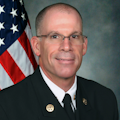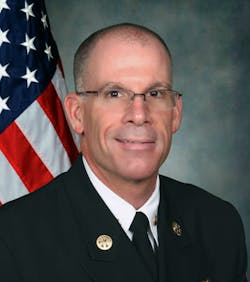As Firehouse Sees It: Finding the Middle Ground
There’s an old saying that has been echoed throughout the fire service for as long as I can remember: “The problems are all the same regardless of where you go, just the names and faces change.” While my opinion may differ on a variety of topics, this is certainly not one of them. Throughout my career and during my countless conversations with firefighters around the country, I’ve seen evidence of this statement time and time again.
Having said that, it is likely a surprise to no one that there’s one problem that seems to be getting more and more attention in fire stations and fire academies throughout the country: how to deal with “them.” No, the “them” is not the administration, it’s not city hall, nor is it the beloved “bean counters.” The “them” is the newest generation of firefighters—the Millennials—who are beginning to fill our ranks.
I was recently in a meeting with a group of senior fire officials (aka Traditionalists, Baby Boomers, and Generation Xers) who were expressing their consternation with their most recent group of fire applicants and newly employed recruits.
“When I was hired, I tested against 1,500 other applicants for two positions and was willing to do virtually anything to get the job,” said one of the officials. “Now we have the same number of applicants with far more openings, and they expect us to serve them lattes when they show up for work. What gives?”
As I listened to their comments, I immediately began thinking about a book I was reading titled Sticking Points: How to Get 4 Generations Working Together in the 12 Places They Come Apart. In his book, author Haydn Shaw writes, “Getting stuck complaining about what is different is the biggest cause of generational tensions.” Instead of complaining about the differences, Hayden suggests that we acknowledge, appreciate, flex, leverage and resolve the differences that divide us.
At first glance, this advice might seem to be an overly simplistic solution to what we perceive to be an incredibly complex and dynamic problem, but I’m not so sure that is true. Ask yourself, in all of the kitchen table conversations about “them,” how many times have you heard someone present a positive counterargument about their contributions to the fire service? What if we placed value in our differences instead of complaining about them? Hogwash, right?
While some might perceive this to be a naïve defense of the Millennials, the truth is this: Whether we like it or not, they’re the future of the American fire service, and WE must learn to acknowledge our differences, appreciate what they provide the fire service, and at times flex (or compromise) some of our longstanding beliefs and methodologies. In doing so, we might very well leverage their skill sets and resolve some of our more traditional problems, such as those related to the use and application of technology, new forms of training and delivery, and alternative tactics and service delivery.
I don’t suggest this with a blind eye of reality. Every generation, yours and mine included, offers unique qualities and skill sets that conflict in some form or fashion with the previous generation, but fire departments throughout the country have continued to operate everyday without missing a beat.
So with this in mind, I challenge you to step back and look at the American fire service, not how it is today, but how it might look, feel and operate in the future given the positive attributes of the current and next generation of firefighters.
Will our struggles be the same? Will our interest and access to information and technology allow us to achieve new heights? Will new traditions surface that bring about a whole new mindset of personal and organizational pride?
Let us not forget that the way we operate today is the way WE—the current generation—prefers to do things. Our policies, our tactics and many of our beliefs are based on a firm foundation of many years of experience, but is it the best way and will it be the way of the future, or is it time we break the mold and begin searching for the middle ground?
About the Author

Timothy E. Sendelbach
Editor-in-Chief
Timothy E. Sendelbach is a 30-year student and educator of the fire and emergency services, and former editor-in-chief for Firehouse. He has served as an assistant fire chief with the North Las Vegas, NV, Fire Department, as the chief of training for Savannah (GA) Fire & Emergency Services and as assistant fire chief for Missouri City, TX, Fire & Rescue Services. He is a credentialed Chief Fire Officer and Chief Training Officer and has earned a master’s degree in leadership from Bellevue University, bachelor’s degrees in fire administration and arson and an associate’s degree in emergency medical care from Eastern Kentucky University.
